- Home
- Tim Lebbon
Vale of Blood Roses
Vale of Blood Roses Read online
VALE OF BLOOD ROSES
A tale of Noreela
TIM LEBBON
© Tim Lebbon 2015
Tim Lebbon has asserted his rights under the Copyright, Design and Patents Act, 1988, to be identified as the author of this work.
First published in 2015 by Tim Lebbon.
This edition published in 2016 by Endeavour Press Ltd.
There is a smell in the air as he throws stones at the skull ravens, and he has smelled it before, and recurring nightmares come back at him like yet more of those vicious birds, pecking and probing and doing their utmost to undo his mind. Jakk Young pauses with one stone remaining in his hand and three ravens in the tree. The odds excite him. The creatures watch him with their soulless eyes, and soon they will call back their brethren he has scared off.
He sniffs, throws the stone and watches the final three birds fly away. Even then it feels as though they are laughing at him. He sniffs again, taking slow, measured breaths. He turns around slowly, scanning the woods for any sign of movement. But there is nothing, and he is alone. The smell has vanished now – if it was ever there at all – and those briefly recalled nightmares are beyond his grasp once more. But the memories, though faded and sometimes so remote that they feel like the recollections of others, are always there.
Jakk gathers his backpack, bow and the ground squirrel he shot earlier and starts for home. The woods have come alive again now that he has seen away the skull ravens, and the canopy sings with the busy, complex concert of Pengulfin Woods’ wildlife. Wood sparks grind their legs to scratch out their mating calls. Song birds try to outdo each other in range, volume and beauty. Ochre tree frogs groan and growl, lizards whisper their way across rough bark and crown ants whistle softly as they expel venom into the guts of their unfortunate prey. Noises he knows and is familiar with, and they make Jakk feel at home. He knows the geography of this part of the forest so well that he could walk this final mile with his eyes closed. The noises and smells make shapes, locating tree and path, rock and stream. He has been here for fifteen years, yet it is only recently that he started to understand the language of the land.
A hundred steps further on, he knows that something is wrong.
That smell, he thinks. It came back like the ghost of a memory, not smelled but remembered; caked dust, blood-roses trampled underfoot, death in waiting. He knows it is bad, but his memories are in turmoil, fighting and rolling with nightmares so that he is not quite sure which are which. The idea that he could have lost so many bad memories is, in a way, worse than being able to remember them all. They stalk him, unknown and hidden away. Even after so long, he knows that dangers you can see and understand are much less terrible than horrors you cannot.
He is suddenly eager to reach home. He enjoys hunting in the woods, welcomes time on his own away from Bindy and their child Romana, but now he wishes nothing more than to be with them again. The frogs’ calls are mocking, the wood sparks do not bode well. And as he crests the small rise to the east of their homestead in a clearing in the woods, and that smell from the past is real once again, he sees that one of his nightmares is about to make itself known.
*
His daughter Romana stands at the entrance to their humble home, one hand holding the door half-open behind her, the other pressed to her mouth as if to hold in a cry. It’s not like Romana to be so quiet, and Jakk knows that she is shocked, upset or afraid. Perhaps all three.
Bindy is a dozen steps from the timber building, kneeling beside a shape splayed on the ground. The shape is a man. Jakk’s wife seems frozen above him, one hand outstretched but unable to touch whoever it is.
That’s where the smell is coming from, Jakk thinks. That shape. That person. Blood roses rotting, and he must have come here to return my nightmares to me.
Bindy looks back at the building. “Roma, bring water, quickly.”
“Mother …?”
“Water, Roma. And see if you can find the horn. We need your father here.”
For a few beats Jakk feels like an intruder, viewing a scene he was never meant to see. They don’t know I’m here, he thinks, and for a few beats more he remains motionless and silent, watching his wife’s naturally caring soul fighting and debating what to do, how to touch.
What must she be seeing? That stink is bad, and it would be amazing if the person is not already dead.
“No need for the horn,” he says at last. The relief on Bindy’s face is a comfort, but also a warning.
“Jakk, thank the Black! He stumbled in, collapsed, and I think he might be—”
“Don’t touch,” Jakk says. He hurries down the gentle slope, keeping to the path they have worn here over the years. He knows the route so well that he does not need to look, and that way he can examine the man sprawled on the ground before his wife.
Dead, Bindy wants to say. I think he might be dead. But Romana is still watching from the doorway and listening to her parents’ conversation. A growing girl, death is becoming something of a preoccupation. The fact that Jakk refuses to talk about it perhaps makes it worse, but he has seen too much death to be able to discuss it with his daughter. Every question she asks dredges up bad memories.
And Old Parkgan doesn’t help, wandering through the forest and telling anyone who will listen that the Cataclysmic War has marked the end. Borrowed time, he says. We’re all inhaling the land’s final breath.
As if to prove everyone wrong, the prone man groans.
“Roma, hurry with that—”
He shouts, sits up and reaches for Bindy. She falls back and kicks out, knocking his hand aside and scurrying backwards on hands and feet.
“Bindy!” Jakk drops the dead ground squirrel and bow and runs, pulling his knife as he does so. It whispers against the leather scabbard, and his blood is suddenly on fire.
“Jakk!” the man says when he looks around. “Jakk Young!”
Jakk pauses a dozen steps away, hand still clasping the knife’s handle. The man has dark skin. No hair, a bulky body that may have once been strong. To begin with Jakk does not know him, because he has changed so much. But he can smell him. And he can see the blossoming blood roses on the man’s stomach, spread in a splash as though planted there with a flourish. “No,” Jakk says. “I don’t know you.”
The man laughs. It sounds mad. “But you know these, Jakk?” He runs his hand across the tops of the stubby flowers, and fleshy petals kiss at his fingertips. “And you know you can’t forget what we did, can’t just shut it away!”
“Roma, that water, now,” Jakk says. She disappears inside and closes the door behind her.
“It’s come,” the man says.
“What’s come?”
“Revenge … like we always knew it would.” The man raises himself on both arms, stretching forward as if to take a bite from the air. “Jakk, I only just got away! They’ve already got Rufiere and Leeza, and I only just …” He touches the blooming things across his stomach again, and below them Jakk can now see a deep, ugly cut. Things protrude from there, and they look like coiled grey guts. “But I didn’t get away for long. I cut one, it bled, and now …”
Jakk feels cold. Revenge, the man said. And those nightmares are circling, coalescing, and Jakk can hear them mocking him from where he thought he had buried them away. “Stay away from my family,” he says quietly.
“You have to get away!”
“Stay down. Don’t get up.” He walks backwards to where he dropped the bow, picks it up and strings an arrow. He does not take his eyes from the sick man, not for an instant. That would be dangerous.
“Jakk?” Bindy says. “Who is he? What’s wrong with him?”
“Haven’t you told her anything?” the man asks. He laughs but there’s little
humour there, only disbelief. “Nothing at all?”
Jakk sights along the arrow. Shut up, he thinks, shut up, shut up, please give me any excuse and I’ll make you shut up.
“Ventgoria,” the man says. “Jakk and I fought the Soyaran from the Poison Forests.”
“Jakk fought the Krotes in the Cataclysmic War,” Bindy says, but she’s looking at Jakk now more than the man.
Jakk stares back. He blinks slowly. I’ll tell you soon, he tries to convey. I lied, and I’ll tell you soon. But not right now.
“It’s come for us,” the man says again. “The heart and mind.” He spits out a mouthful of blood.
Jakk breathes in deeply and wonders when his turn will come.
*
The valley was not meant to be there, so that’s why they went in. It appeared before them as they marched north out of the bloodied borderlands between Ventgoria and the Poison Forests. Behind them they had left a field of dead bodies, piled three deep and burning. The southerly breeze gusted the stench of burning meat after them, the smell of guilt having little effect on these people. They had left any morals at home years ago. Remorse had no place in their new world of blood and money.
Barr wore a necklace of thumbs sliced from his victims, one from each. At least forty were strung around his neck. Jakk had told him how foolish he was being; there was no trusting the blood of the Poison Forest tribes. But Barr had started collecting these gruesome trophies at the beginning of their campaign, and none of them had sickened him yet. Jakk knew that Barr had an immortality complex, with knife wounds, acid spit burns and a badly healed slashed throat testament to his claim. Jakk also knew that when such men fell, they fell hard.
The others – only four remained from their original force of twenty – marked kills in their own unique ways. Rufiere kept shreds of cloth from his victims’ clothing, and he was making himself a ragged coat of many colours and textures. Leeza cut her arm every time she killed, and her left arm was a scarred map of victories. They held various other mementoes, medals of success and marks of triumph … but Jakk kept nothing. He was not here to keep score, a tally to boast of later in life over mugs of rotwine around camp fires. He knew the face of every man, woman and child he had killed, and sometimes at night they smiled at him.
“What in the Black is that?” Rufiere said. He claimed he had a Book of Ways, and though the others knew him as a liar, they grudgingly admitted that he always found the most favourable routes from one place to the next. “Shouldn’t be here. This is woodland and grassland, a few marshes, all the way north to the Cantrass Plains. No valleys. Nothing like this.”
“Obviously your little book’s wrong,” Barr said.
They had topped a small crest and now a narrow valley lay before them. It was a deep, almost brutal wound in the land, its sides a mixture of sheer cliffs, shale slopes and rocky promontories, with only a few seemingly manageable routes down into its depths. It ran south to north, its southernmost reach before them now. Sunlight fought to illuminate its depths, but clouds to the north and a heavy yellow mist closer by sought to deny the sun access. It gave the valley the appearance of somewhere that did not belong.
Rufiere pulled the small battered leather-bound book from his jacket pocket and made a show of consulting several pages. “A way north,” he said. “That’s what should be here. Look, double-humped hill to the east, flatter ground to the west with a forest a few miles distant. And here …” He pointed ahead at the rift in the ground. “Here, an easy route north. Streams to drink from, terrain not too difficult to cross.”
“Looks difficult as fuckery to me.” Barr took a lump of harshroot from his pocket and bit off a chunk, chewed, grimaced past the initial bitterness to the alluring sweetness beneath.
“We should take a look,” Jakk said.
“Listen!” Leeza hissed. She rarely spoke, and when she did her voice, with its exotic southern accent and deep seriousness, sounded unused.
They all listened and Jakk heard the sound immediately. Heard it, but did not quite believe. “Machines?” he said.
“No,” Rufiere said. “Can’t be.”
“Why not?” asked Barr, inviting argument.
“Because all the machines are dead.” Jakk stepped forward to distance himself from his mercenary companions, trying to decide exactly what he was hearing. Grinding, clanking, the sound of venting steam and sighing heat, wheels whispering over loose stones …
“There!” he said. Machines! He could hardly believe it. The machines had died three years before at the end of the Cataclysmic War, and since that shock the land had been suffering a steady regression towards more basic times. Now, in this valley that should not exist, he could see three machines working the hillside, plucking short purple plants from the ground, dropping them into fleshy hoppers on their backs and venting shredded greenery into the air behind them.
Jakk had forgotten how beautiful they were. Their movements were smooth and graceful. Their fuel was magic.
And magic was no more.
“This is not real,” Jakk said.
“Looks real enough to me.” Barr was the first of them to step across the obvious boundary between the land that should be there and the valley that should not.
For an instant Jakk expected something to happen to him. He would disappear, collapse or be destroyed because of his trespass. Jakk held his breath and watched his fighting companion start down the slope. Barr paused after a few steps and raised his face to the sky, and Jakk thought, This is when it happens. But he had seen enough corpses to know that he was far from dead.
“Smells good,” Barr said. “Smells like blood. Coming?”
The machines worked away to their left, lower down the slopes and deeper into the valley. They seemed to not notice Barr’s invasion into their territory.
The others followed Barr, and Jakk followed them. Perhaps I’ve seen enough of blood, he thought. But he had long ago stopped trying to deny his true nature. The idea of a fight drew him on, and the mention of blood set his own on fire.
The possibility of slaughter had not yet entered his mind.
*
The woman was walking slowly across the hillside, stepping carefully between sprouting heathers and looking down at her feet. She carried a soft bag in one hand and a squat metallic device in the other, the two connected by a thin flexible tube. Every few steps she paused and worked the device in her right hand, expelling a few droplets of red fluid onto the ground. She waited as if to watch the drops soak in, then moved on. Behind her, marking the path she had taken, thin red shoots were already peering between blades of grass.
She’s beautiful, thought Jakk. He was more used to the infected, scarred Soyaran women of the Poison Forests, and seeing this woman’s smooth pale skin and raven hair was a shock.
She looked up as they approached, and for a beat her expression did not register anything, almost as if it took her a few moments to see them. Then she stumbled back with a cry and fell over.
“Wait!” Jakk said. He moved forward, hands held out. “We’re not here to hurt you.” Then why are we here? he thought, if hurting is what we do best?
The woman crawled back, her face an image of terror. She had dropped the bag and dripping device and they leaked into the ground. Maybe it’s the weapons, Jakk thought. Or our sudden appearance from out of the valley. Maybe she’s the only one here.
Jakk reached for his bow and slipped it from his shoulder. The woman screamed again.
“Who are you?” he asked. The question felt foolish, but she spoke words that made no sense, garbled noises that conveyed only fear and upset.
“Just another tribe,” Barr said.
“No, she doesn’t recognise us, doesn’t think—”
“Tell us who you are!” Rufiere shouted. “You shouldn’t even be here. You’re not in the book, you’re not here!”
Still the woman screamed, and Jakk saw that she was looking at their weapons; the bow in his hand, the sword and knives str
apped to his belt.
He heard the whistle of the arrow at the same instant it embedded itself in the woman’s throat.
“No!” Jakk shouted.
Barr laughed. Leeza scolded him half-heartedly. Rufiere sighed and shook his head, looking down at the book that lied.
The woman lay on her back, hands clawing at her throat as blood began pulsing from the wound.
Jakk ran, careful to step over the bag she had dropped. By the time he reached her the woman had stopped moving, and he saw the life go from her eyes.
“Why did you do that?” he shouted, turning to Barr.
“Way she talked, she’s just another—”
“She looks nothing like the Soyaran!”
“Well, maybe not her face. But—”
“But nothing. We’re finished here. The Ventgorians don’t want our help anymore, Barr, and the killing is over.”
“Jakk?” Leeza said, and she seemed genuinely confused.
He looked at her, at Rufiere, and when Barr drew his knife and walked past him to the dead woman Jakk turned to stare down into the valley. He heard clothes ripping, Barr grunting and sighing, and then the crunch of her thumb bone breaking as he took his trophy.
I really believed it had all ended, he thought. And then the smell of fresh blood wafted up from the depths of the valley, and he knew that they were somewhere special.
*
“Barr,” Jakk says.
Barr looks up and coughs more bloody mess. He smiles a red smile. He knows that Jakk would never have forgotten him.
I could kill him now, Jakk thinks. Slit his throat while he’s puking. Let it flow for real. But he has not killed anyone for fifteen years, not since the folded valley opened itself to them.
Barr’s smile widens, strings of vomit hanging from his nose, blood speckling his cheeks. He spits and wipes the mess from his lips. “I knew you’d never forget,” he says. Though his voice contains a triumphant lilt, there is nothing of hope in him. Jakk can see that the man in dying, and he knows it very well.

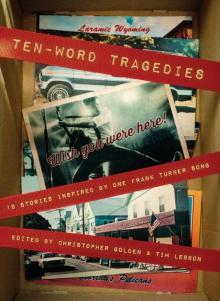 Ten-Word Tragedies
Ten-Word Tragedies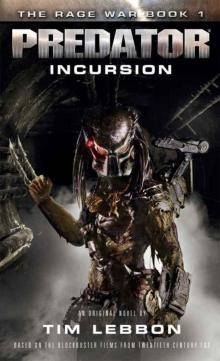 Predator: Incursion
Predator: Incursion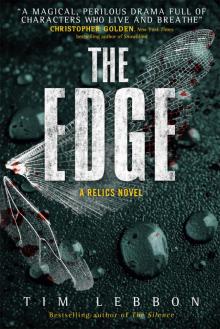 Relics--The Edge
Relics--The Edge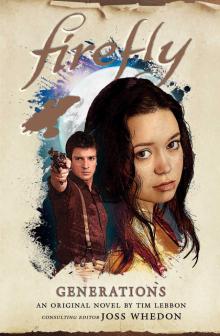 Firefly
Firefly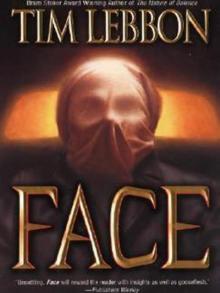 Face
Face Generations
Generations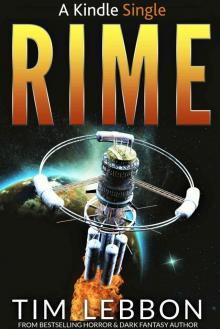 RIME (Kindle Single)
RIME (Kindle Single) Fallen
Fallen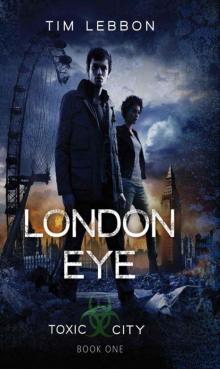 London Eye tc-1
London Eye tc-1 Kong: Skull Island
Kong: Skull Island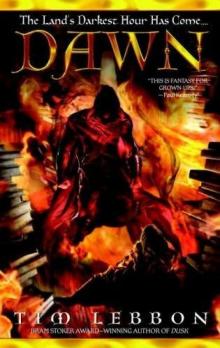 Dawn n-2
Dawn n-2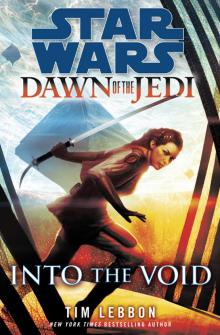 Into the Void: Star Wars (Dawn of the Jedi)
Into the Void: Star Wars (Dawn of the Jedi)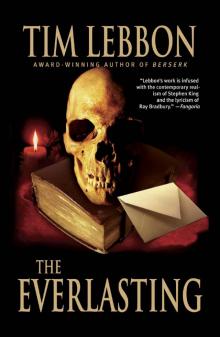 The Everlasting
The Everlasting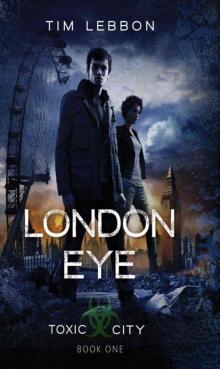 London Eye: 1 (Toxic City)
London Eye: 1 (Toxic City)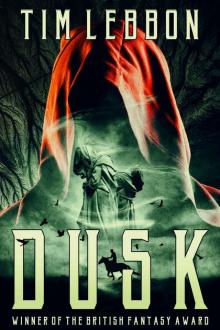 Dusk: a dark fantasy novel (A Noreela novel)
Dusk: a dark fantasy novel (A Noreela novel)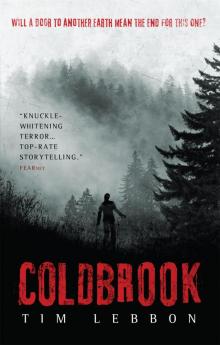 Coldbrook
Coldbrook Alien
Alien Dusk
Dusk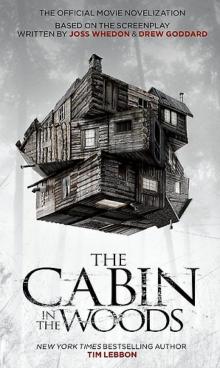 The Cabin in the Woods
The Cabin in the Woods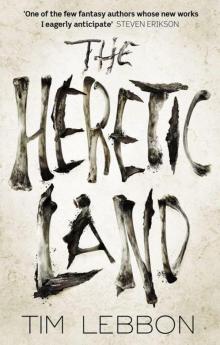 The Heretic Land
The Heretic Land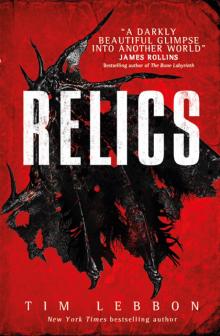 Relics
Relics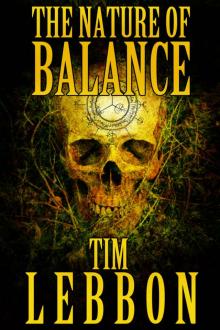 The Nature of Balance
The Nature of Balance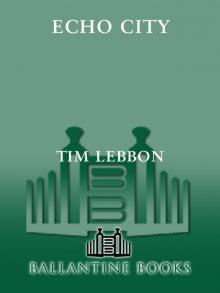 Echo City
Echo City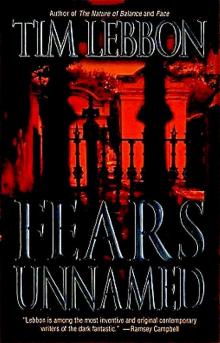 Tim Lebbon - Fears Unnamed
Tim Lebbon - Fears Unnamed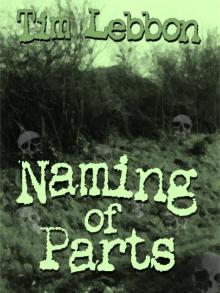 Naming of Parts
Naming of Parts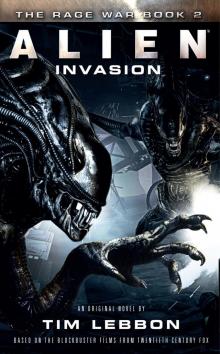 Alien--Invasion
Alien--Invasion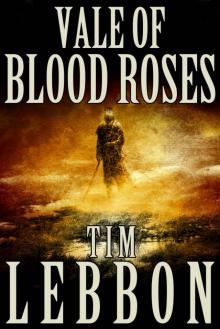 Vale of Blood Roses
Vale of Blood Roses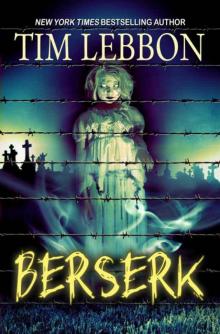 Berserk
Berserk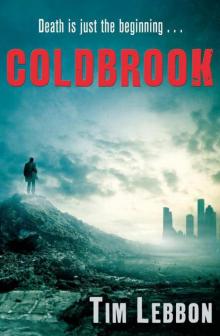 Coldbrook (Hammer)
Coldbrook (Hammer)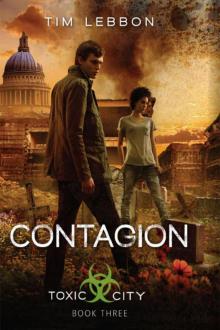 Contagion tc-3
Contagion tc-3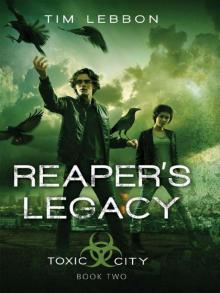 Reaper's Legacy: Book Two (Toxic City)
Reaper's Legacy: Book Two (Toxic City)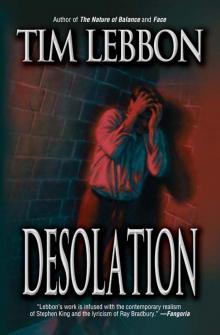 Desolation
Desolation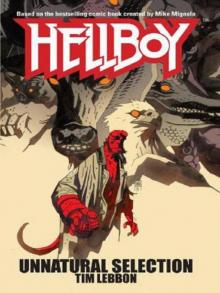 Unnatural Selection
Unnatural Selection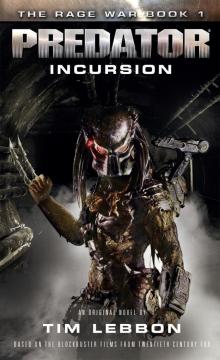 Predator - Incursion
Predator - Incursion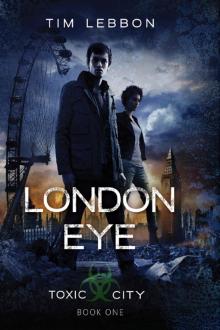 London Eye
London Eye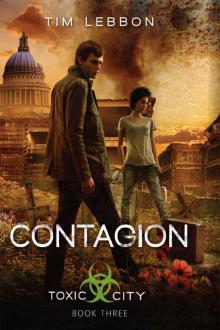 Contagion (Toxic City Book Three)
Contagion (Toxic City Book Three) The Silence
The Silence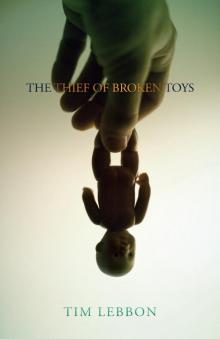 The Thief of Broken Toys
The Thief of Broken Toys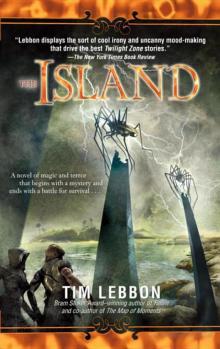 Tales of Noreela 04: The Island
Tales of Noreela 04: The Island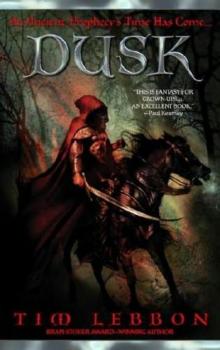 Dusk n-1
Dusk n-1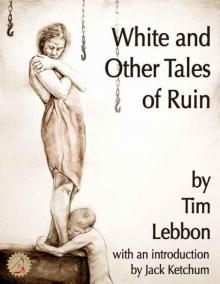 White and Other Tales of Ruin
White and Other Tales of Ruin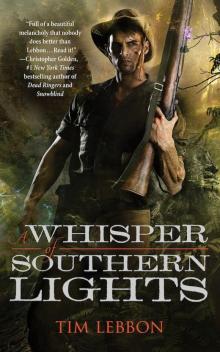 A Whisper of Southern Lights
A Whisper of Southern Lights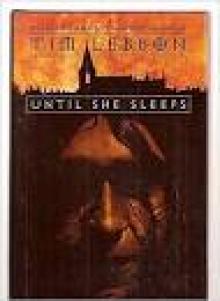 Until She Sleeps
Until She Sleeps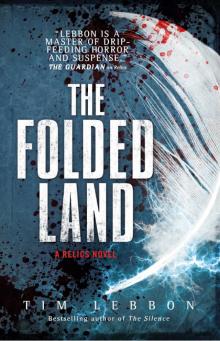 Relics--The Folded Land
Relics--The Folded Land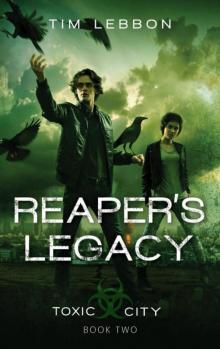 Reaper's Legacy tc-2
Reaper's Legacy tc-2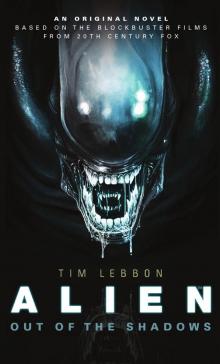 Alien: Out of the Shadows
Alien: Out of the Shadows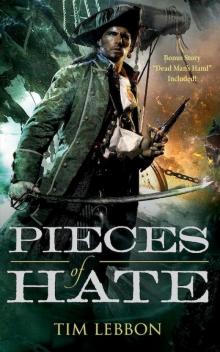 Pieces of Hate
Pieces of Hate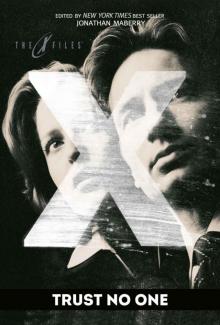 X-Files: Trust No One
X-Files: Trust No One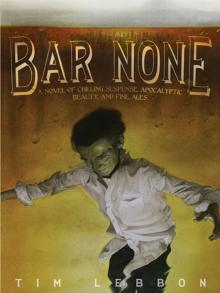 Bar None
Bar None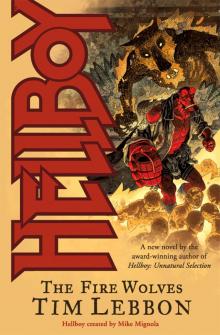 The Fire Wolves
The Fire Wolves